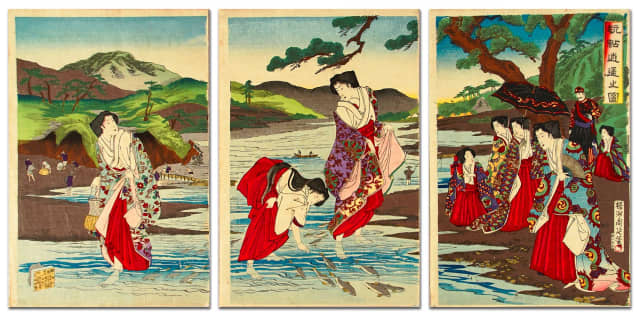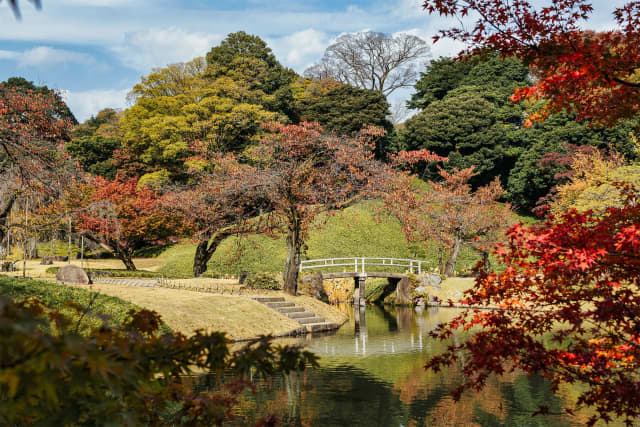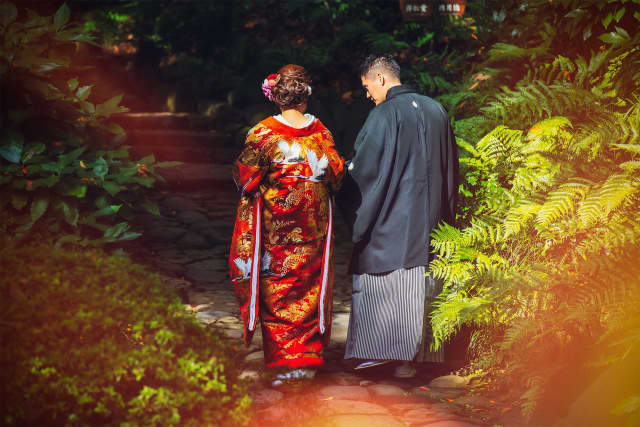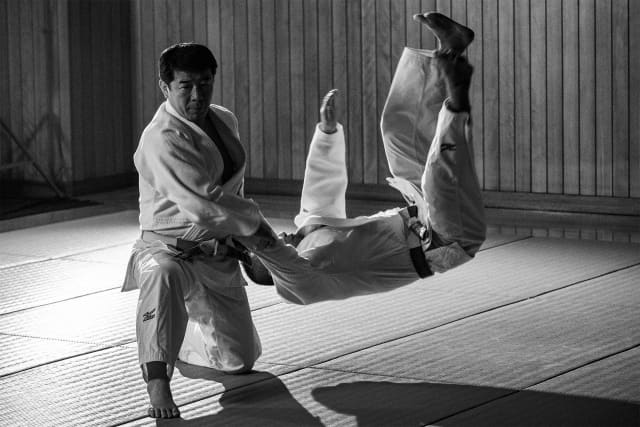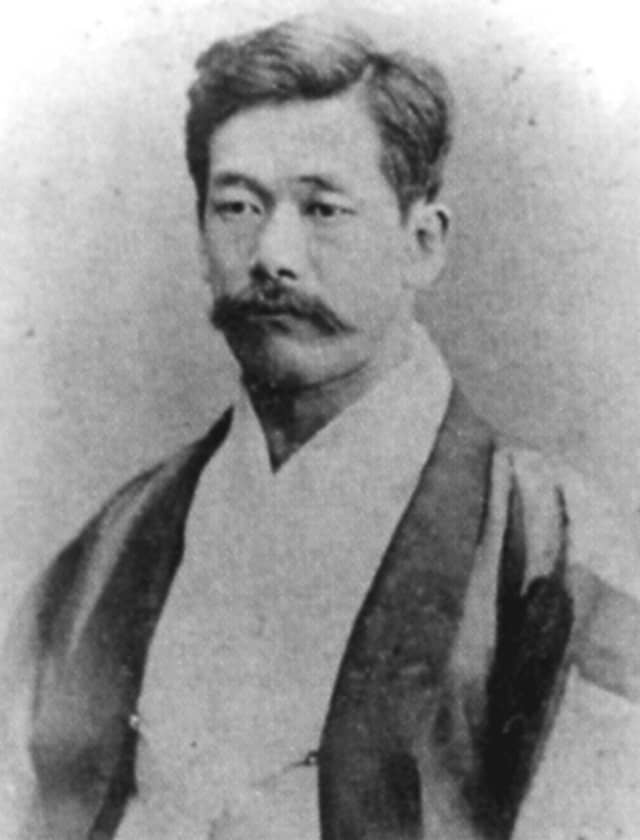From childhood, Kano thus developed an extraordinary ability to transmit his knowledge. He never did it ostentatiously and even less casually but, on the contrary, with the conviction that teaching was the key to the development of a harmonious society. This is why it is crucial to never forget that judo, which often served as a laboratory for experimenting with new ideas, was intimately linked to the advent of quality teaching which aimed to profoundly change the methods of education that had prevailed until then. This was valid for Japan as it was for the rest of the world.
We have seen previously that at the beginning of Kano's life, Japan was going through a period of profound change in its political, economic, cultural and social structure. Undeniably, this had a major influence on Kano. The Meiji era, which lasted between 1868 and 1912, symbolised the end of Japan's policy of voluntary isolation (sakoku) and the beginning of a policy of modernisation. The shift from a feudal system to a Western-style industrial system was also all-encompassing and led to industrial and economic progress, as well as progress in the agricultural sector and trade with foreign countries. To do this, Japan took a close interest in what the West was doing, while trying to keep its millennial culture in tact but this was not being done completely without difficulty.
Politically and structurally, Japan therefore moved towards a system in which patriotism remained in force while individual freedom was strengthened. The educator, philosopher, writer, entrepreneur and samurai, who founded Keio University, the Jiji-Shinpō newspaper and the Institute for Study of Infectious Diseases, Fukuzawa Yukichi (10th January 10 1835 – 3rd February 1901) wrote that the freedom and pleasures were to be the goal of mankind in a rich and prosperous country, a revolution for the feudal Japan of yesteryear. To achieve its new goals, Japan turned to the West, while the latter developed a particular appetite for Japanese arts and traditions.
However, the diffusion of Western concepts was not without difficulty and opposition was often strong, European ideas being considered as a danger for Japanese culture and philosophy sometimes. The opposition between supporters of an outdated conservatism and supporters of modernism, raged for years before Japan's new constitution of 1889 brought some order to all these conflicts and then the Imperial Rescript of 1890 defined a new approach to education.
The ideas developed in this Imperial Rescript enabled the establishment of a consistent and freely accessible education for all, which was the cornerstone of Japan's future success. Jigoro Kano was influenced by these ideas to which he largely subscribed, except for the elements which, according to him, could lead to the development of not a genuine patriotism but a dangerous nationalism. This is another story to which we will return.
The new Japanese education system was based on Confucianism, which was not to displease Kano. This current, stemming from Chinese thought and drawn from the teaching of Confucius (551-479 BCE), was based on precepts defending a humanist morality, in which the art of living harmoniously with one's fellows based on self-control and on family piety was central to the development of the individual.
As a young university student, Kano threw himself body and soul into the education of young people and was at the heart, throughout his life, of the Japanese education machine. Everything was not a long, calm river and Kano had marked opposition with some of his contemporaries but he always remained attached to a certain vision of humanity which shines through in judo. Japan had to catch up with the rest of the world but not at any cost. The militarism that certain leaders promoted a few years before Kano's death was the opposite of his vision of the world.
One of the major problems that Kano faced was the cost of university studies, which was often exorbitant. Coming from a wealthy family himself, he did not have to suffer from it directly but when he became aware of the situation, he struggled throughout his life to promote access to as many people as possible, without discrimination. His involvement and investment made him a key figure in the advent of a new education system.
At the end of his university course, this born teacher devoted himself to youth and its development. Later, between 1912 and 1925, Japan launched new education reforms, with Kano being one of their main architects. Again, we will come back to this. Before that, you have to imagine the young man, eager for knowledge and above all fundamentally happy in the transmission of this knowledge. You have to listen to him talk about it to better understand, "In the days of my youth, when I was taught to read, I gathered the children of my immediate family and I taught them with excerpts. For me to teach something to a person, it was a kind of pleasure." (source: Jigoro Kano, Père du Judo - Michel Mazac - Budo Editions, 2014)
After his studies Kano became a professor at the Gakushūin. It was an educational institution established in Tokyo in 1877, during the Meiji era and its educational focus was on the children of Japanese nobility, before it opened its doors more widely. Much appreciated by his peers as well as his students and although still very young, Kano became secretary of the Gakushūin in 1884, while continuing to teach. In 1888, he became deputy director of the institution and among his students there was the future Emperor Taishō (大正天皇, Taishō Tennō, born 31st August 1879 in Tokyo and died 25th December 1926), known to those living in the West by his personal name Yoshihito (嘉仁). He was the 123rd emperor of Japan and reigned from 30th July 1912 until his death.
It's almost impossible to list all the projects Kano got to work on, they were so many and so entertaining. While in 1882 Kano created judo and founded the Kodokan, he also created a school of literature, the Kōbunkan for the study of English, which he attended until 1889. At the same time, he worked on the foundation of Kano Juku Tutoring School and Kobun Gakuin School, with the aim of providing a comprehensive education in which physical, mental and moral aspects were well balanced.
On 18th October 1888, at a Gakushūin anniversary ceremony, Kano delivered a speech before the then emperor, Emperor Mutsuhito, later known as Emperor Meiji. All of this demonstrates to what extent Kano was one of the key figures in Japan's educational development. He was then only at the very beginning of his career and yet he was already recognised for his skills and open-mindedness. When a new headmaster was appointed to the Gakushūin, however, things became more complicated for Kano. The new director was in favour of a certain conservatism and wanted to restrict access to the school. Kano, on the other hand, wanted to open it to as many people as possible without distinction of origin, but above all he also wanted to grant a large number of scholarships for study programmes abroad.
Tireless, but now in opposition to the director of the Gakushūin, he seized the opportunity of a first trip abroad to perfect his knowledge of Western education systems, but that's also another story, which we'll talk about soon.

